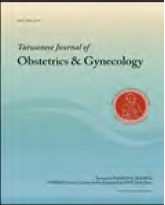Min Feng, Liang-Hsuan Chen, Le-Tien Hsu, Hsien-Ming Wu
Abstract
Objective: To assess the effects of dienogest on segmented in vitro fertilization (IVF) and frozen-thawed embryo transfer (FET) for a patient with adenomyosis.
Case report: A 33-year-old female with primary infertility for 3 years had dysmenorrhea and hypermenorrhea. Diagnosis of adenomyosis was made with a sonographic exam and an elevated cancer antigen 125 (CA-125, 310 U/mL). Her early follicular hormone profile (anti-müllerian hormone, AMH, 8 ng/mL) was normal. After repeated controlled ovarian stimulation (COS) and failed intrauterine insemination (IUI), she underwent IVF. Controlled ovarian stimulation using gonadotropin-releasing hormone (GnRH) antagonist protocol was performed with the blastocyst freeze-all IVF cycle. Pretreatment with two months of GnRH agonist (GnRHa) and frozen-thawed embryo transfer did not result in pregnancy.
Subsequently, three months of long-term pretreatment with dienogest was given, and the CA-125 level was markedly reduced. Frozen-thawed blastocyst stage embryo transfer was provided, and a singleton pregnancy was achieved.
Conclusion: Dienogest, a novel progestin highly selective for progesterone receptors, may benefit the pregnancy outcomes of infertile patients with adenomyosis adopting segmented IVF with FET.
Case report: A 33-year-old female with primary infertility for 3 years had dysmenorrhea and hypermenorrhea. Diagnosis of adenomyosis was made with a sonographic exam and an elevated cancer antigen 125 (CA-125, 310 U/mL). Her early follicular hormone profile (anti-müllerian hormone, AMH, 8 ng/mL) was normal. After repeated controlled ovarian stimulation (COS) and failed intrauterine insemination (IUI), she underwent IVF. Controlled ovarian stimulation using gonadotropin-releasing hormone (GnRH) antagonist protocol was performed with the blastocyst freeze-all IVF cycle. Pretreatment with two months of GnRH agonist (GnRHa) and frozen-thawed embryo transfer did not result in pregnancy.
Subsequently, three months of long-term pretreatment with dienogest was given, and the CA-125 level was markedly reduced. Frozen-thawed blastocyst stage embryo transfer was provided, and a singleton pregnancy was achieved.
Conclusion: Dienogest, a novel progestin highly selective for progesterone receptors, may benefit the pregnancy outcomes of infertile patients with adenomyosis adopting segmented IVF with FET.
Taiwanese Journal of Obstetrics & Gynecology 61 (2022) 906-908. (Corresponding author). (SCI; IF=2.1; Obstetrics & Gynecology 57/85 =67%).




